
Heartbeat of Nairobi: The Central Business District
The Nairobi Central Business District (CBD) is the vibrant core of Kenya's bustling capital, a place where tradition and modernity blend seamlessly. This area is the economic and cultural hub of Nairobi, offering a rich tapestry of experiences for tourists. From grand colonial-era buildings to contemporary skyscrapers, the CBD is a testament to Nairobi's dynamic growth. A walk through the Nairobi CBD reveals a city in motion. During the day, the streets buzz with activity as locals go about their daily routines, while at night, the area transforms with lively nightlife options, including bars and restaurants. Key landmarks such as the Kenyatta International Conference Centre (KICC) offer panoramic views of the city, and the Nairobi National Museum provides insight into Kenya's rich history and diverse cultures. The CBD is also a shopper's paradise, with bustling markets, modern malls, and street vendors offering a wide array of goods. Whether you’re looking for local crafts, high-end fashion, or unique souvenirs, you're sure to find something that catches your eye. Additionally, the culinary scene here is diverse, featuring everything from traditional Kenyan dishes to international cuisine, reflecting Nairobi's cosmopolitan nature.
Local tips in Nairobi Central Business District
- Carry some cash for small purchases, as not all vendors accept cards.
- Visit the Kenyatta International Conference Centre for a stunning view of the city.
- Stay aware of your surroundings, as the area can be crowded and fast-paced.
- Try the local cuisine at one of the many street food stalls for an authentic experience.
- If shopping for souvenirs, start at the Maasai Market for unique and locally made items.
Heartbeat of Nairobi: The Central Business District
The Nairobi Central Business District (CBD) is the vibrant core of Kenya's bustling capital, a place where tradition and modernity blend seamlessly. This area is the economic and cultural hub of Nairobi, offering a rich tapestry of experiences for tourists. From grand colonial-era buildings to contemporary skyscrapers, the CBD is a testament to Nairobi's dynamic growth. A walk through the Nairobi CBD reveals a city in motion. During the day, the streets buzz with activity as locals go about their daily routines, while at night, the area transforms with lively nightlife options, including bars and restaurants. Key landmarks such as the Kenyatta International Conference Centre (KICC) offer panoramic views of the city, and the Nairobi National Museum provides insight into Kenya's rich history and diverse cultures. The CBD is also a shopper's paradise, with bustling markets, modern malls, and street vendors offering a wide array of goods. Whether you’re looking for local crafts, high-end fashion, or unique souvenirs, you're sure to find something that catches your eye. Additionally, the culinary scene here is diverse, featuring everything from traditional Kenyan dishes to international cuisine, reflecting Nairobi's cosmopolitan nature.
Iconic landmarks you can’t miss
August 7th Memorial Park
Discover the tranquility and historical significance of August 7th Memorial Park in Nairobi, a serene tribute to resilience amidst urban life.
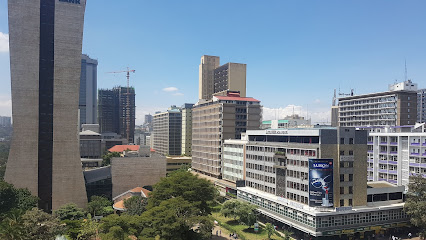
Central Park Nairobi
Discover the serene beauty of Central Park Nairobi, a lush urban retreat featuring scenic pathways, memorials, and vibrant wildlife in the heart of Kenya's capital.
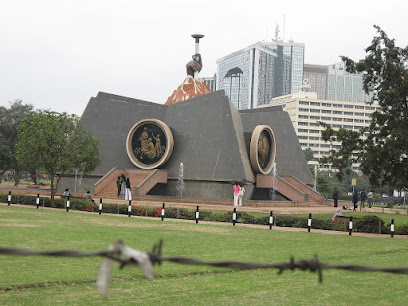
Khoja Roundabout
Discover the vibrant pulse of Nairobi at Khoja Roundabout, a historical landmark that encapsulates the city's rich cultural diversity and energy.
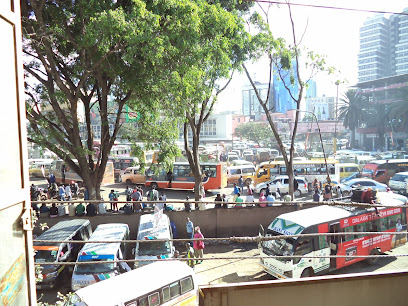
Nairobi Gallery
Discover the vibrant tapestry of Kenyan art and culture at the Nairobi Gallery, where history meets contemporary creativity in the heart of Nairobi.
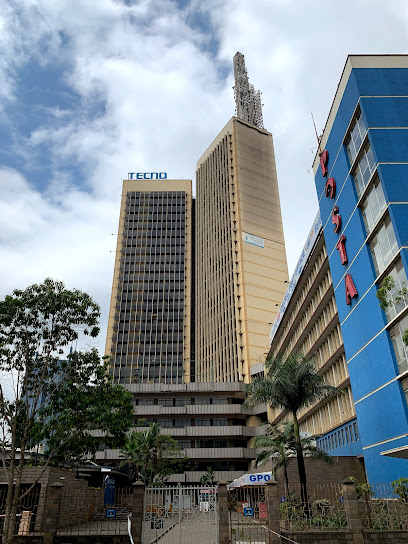
Nairobi Central Business District
Experience the dynamic energy of Nairobi's Central Business District, where modernity meets history in a bustling hub of culture and commerce.
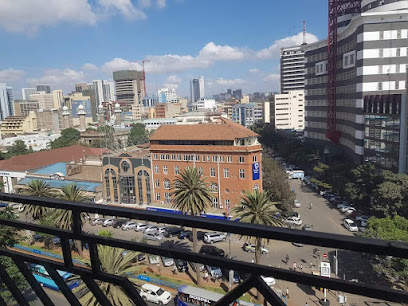
The Galton - Fenzi Memorial
Explore The Galton - Fenzi Memorial in Nairobi, a significant monument honoring historical figures and a serene spot for reflection amid the bustling city.
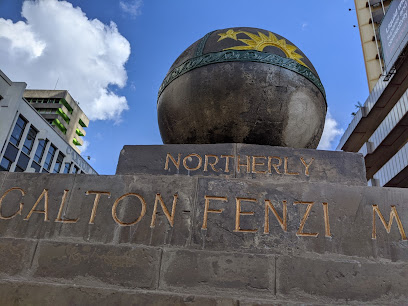
Obelisk
Explore the iconic Obelisk in Nairobi, a historical monument that celebrates the city’s heritage and the legacy of the Uganda Railway.
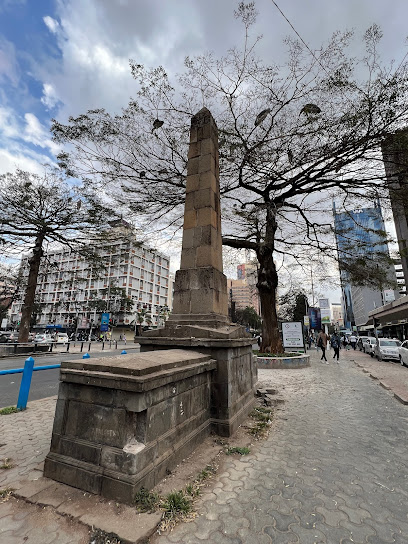
Nairobi
Explore Nairobi, Kenya's vibrant capital, rich in history, culture, and culinary delights, where every corner tells a unique story.
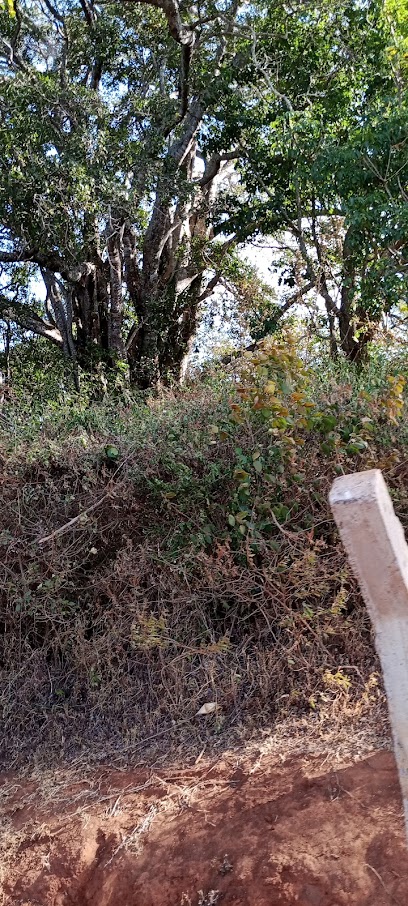
Nairobi Kenya
Explore Nairobi, Kenya's vibrant capital, where urban life meets wildlife adventures and rich cultural experiences await every traveler.
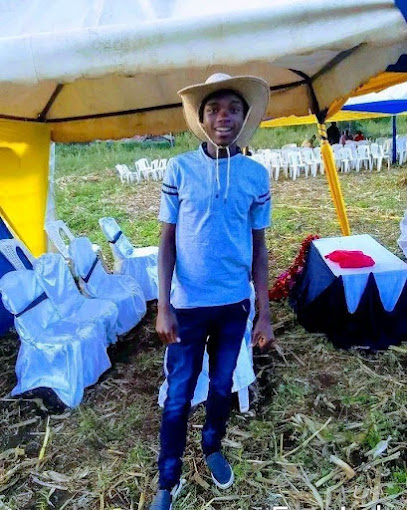
Kumbu Kumbu-Nairobi Central
Discover the vibrant essence of Kenyan art at Kumbu Kumbu, a premier art dealer in the heart of Nairobi Central.
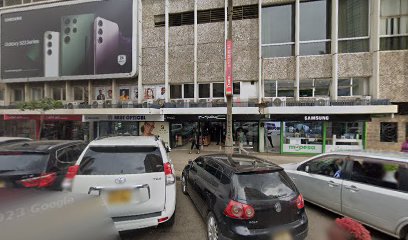
Unmissable attractions to see
Nairobi Safari Walk
Explore the Nairobi Safari Walk, where the wonders of Kenya's wildlife come alive through scenic trails and immersive experiences for all ages.
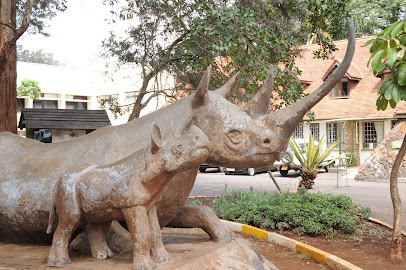
Cathedral Basilica of the Holy Family
Explore the stunning Cathedral Basilica of the Holy Family in Nairobi, a beautiful blend of art, history, and spirituality in the heart of Kenya's capital.
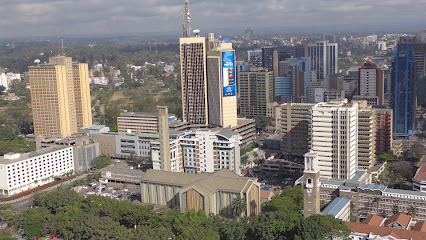
August 7th Memorial Park
Explore the August 7th Memorial Park in Nairobi, a serene tribute to resilience and remembrance amidst lush greenery and historical significance.
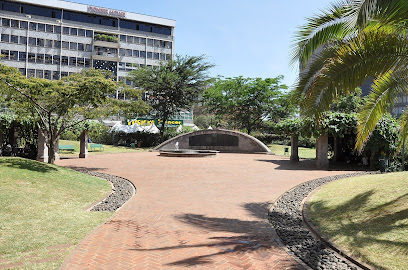
Jeevanjee Gardens
Explore the tranquil beauty of Jeevanjee Gardens, a serene oasis in the vibrant heart of Nairobi, perfect for relaxation and cultural experiences.
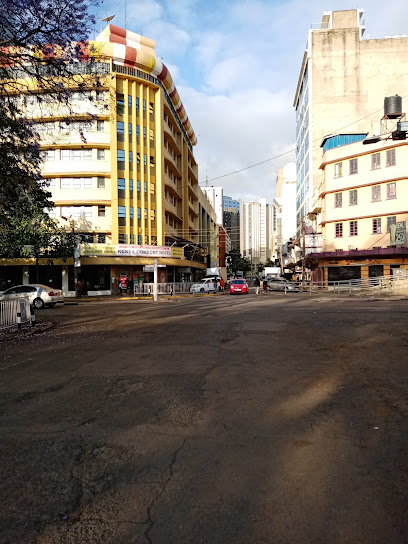
Kenya Railway Museum
Discover the captivating history of Kenya's railways at the Kenya Railway Museum, showcasing vintage locomotives and engaging exhibits in Nairobi.
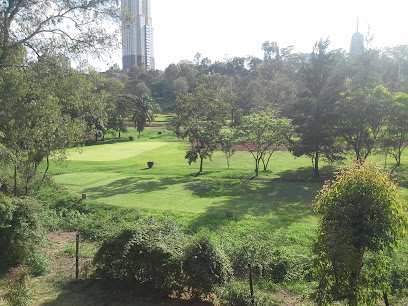
KICC rooftop
Discover the stunning views of Nairobi from the KICC Rooftop, where the city's skyline meets the horizon in a breathtaking panorama.
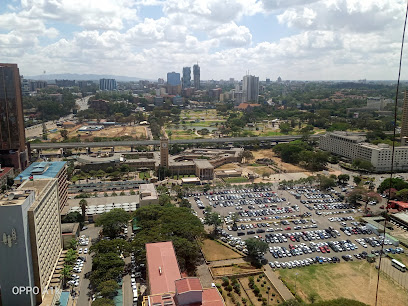
The Galton - Fenzi Memorial
Discover the historical essence of Nairobi at The Galton - Fenzi Memorial, a significant monument that marks the city's geographical heart.
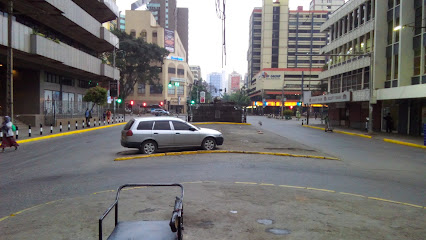
Essential places to dine
Trattoria Restaurant
Experience authentic Italian cuisine at Trattoria Restaurant in Nairobi—where every dish tells a story.
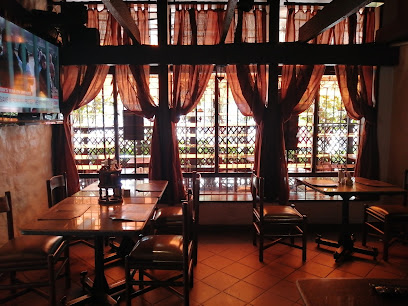
Hot Dishes Restaurant (Old Mutual Building)
Experience authentic African cuisine at Hot Dishes Restaurant in Nairobi's Old Mutual Building - a culinary journey awaits!
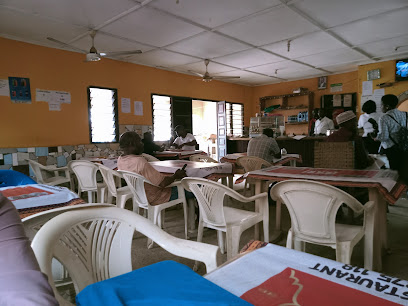
KK Restaurant
Experience the heart of Kenyan cuisine at KK Restaurant in Nairobi City—where delicious flavors meet affordable prices.
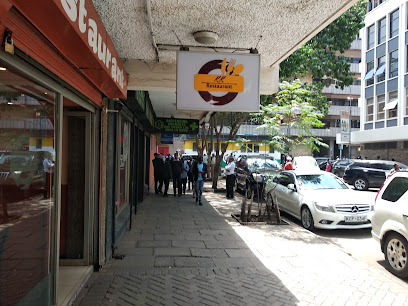
The Collective Restaurant and Art Gallery
Discover Nairobi's vibrant culinary scene at The Collective Restaurant and Art Gallery – where delicious food meets contemporary art.
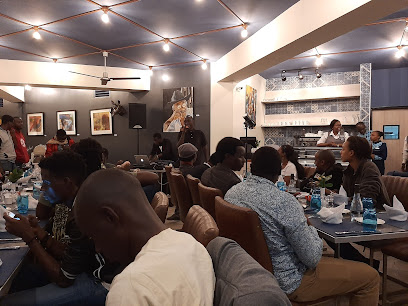
The branch restaurant
Experience authentic Kenyan flavors at The Branch Restaurant in Nairobi's vibrant Kenya Cinema Plaza.
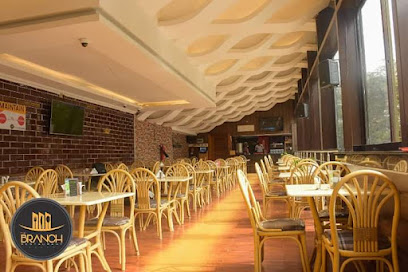
OLIVEIRA RESTAURANT
Experience the rich flavors of Kenya at Oliveira Restaurant – where culinary excellence meets warm hospitality in Nairobi's vibrant heart.
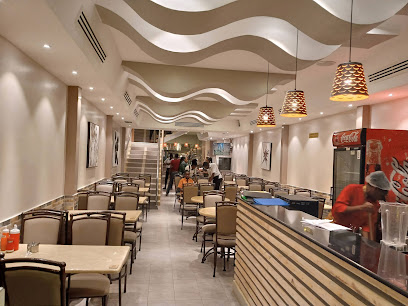
Golden star restaurant
Discover the rich flavors of Kenya at Golden Star Restaurant in Nairobi - where every meal is a celebration of culinary excellence.
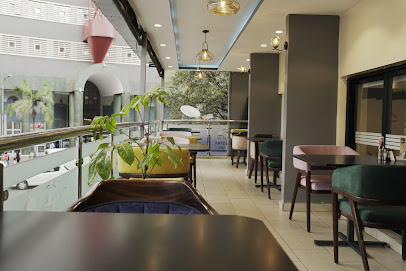
Kay Restaurant
Experience the vibrant flavors of Kenya at Kay Restaurant in Nairobi Central - where exceptional cuisine meets warm hospitality.
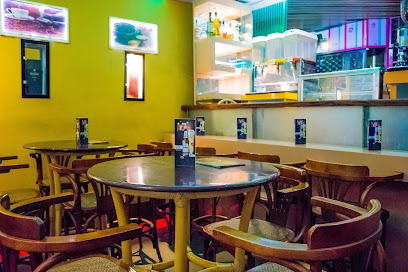
Top Rise Restaurant
Experience exquisite dining at Top Rise Restaurant in Nairobi – where local flavors meet global tastes in an inviting atmosphere.
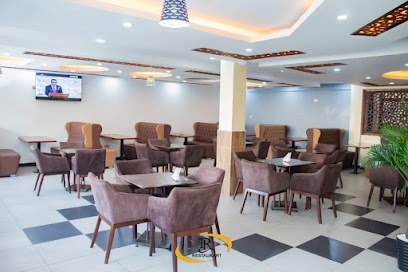
Restaurant
Experience authentic Kenyan cuisine at this cozy restaurant on Mamangina Street in Nairobi's bustling center.
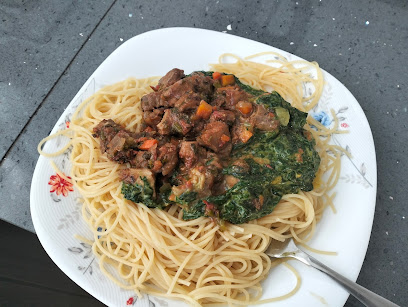
Markets, malls and hidden boutiques
Universal Gift Shop
Discover unique gifts and handcrafted treasures at Universal Gift Shop in Nairobi Central, capturing the spirit of Kenyan artistry.
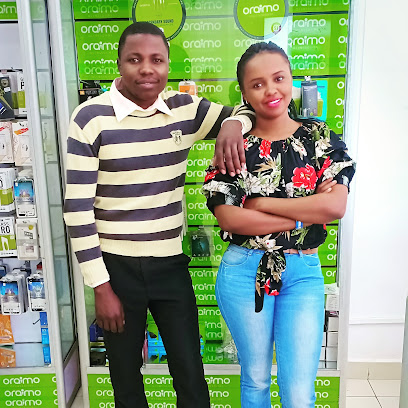
Shop
Discover exceptional shopping at the Tembo Coop House Outlet Mall in Nairobi, where culture meets affordability and style.
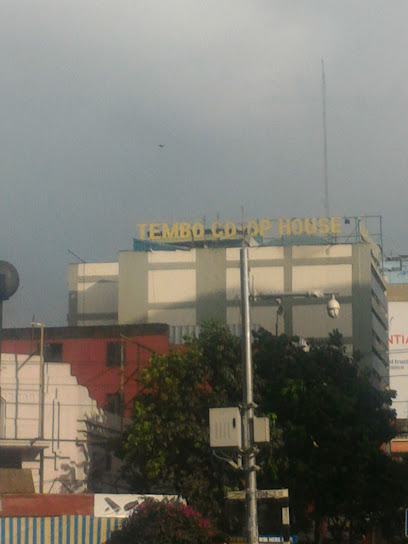
Adorn 'N' More - Fashion Accessories Store & More Worldwide
Explore Adorn 'N' More for a diverse range of fashion accessories, jewelry, and clothing in Nairobi's bustling central business district.
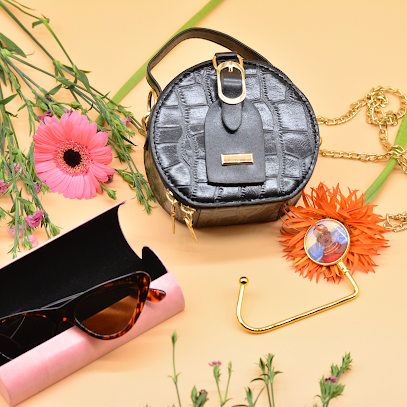
Purveyor Modish
Explore the vibrant artistry of Kenya at Purveyor Modish, your go-to gift shop in Nairobi for unique handcrafted treasures.
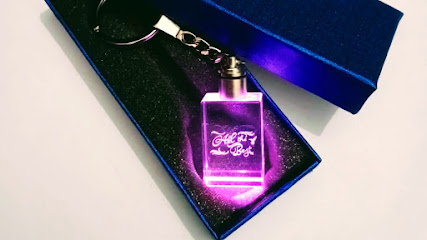
UNIQUE OUTFITS
Explore vibrant fashion at UNIQUE OUTFITS in Nairobi, where contemporary style meets traditional Kenyan craftsmanship.
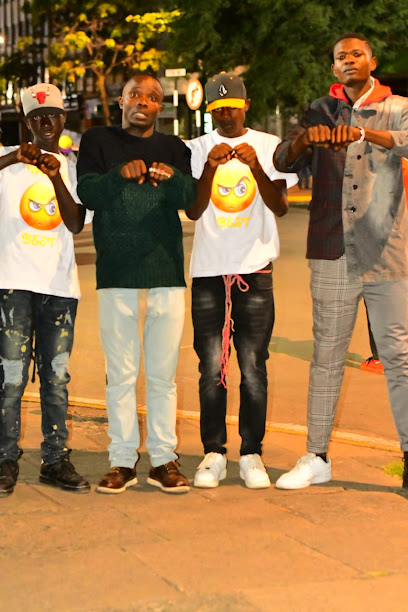
Curio shop 5
Explore Curio Shop 5 in Nairobi for authentic Kenyan gifts and handcrafted souvenirs, capturing the essence of local culture.
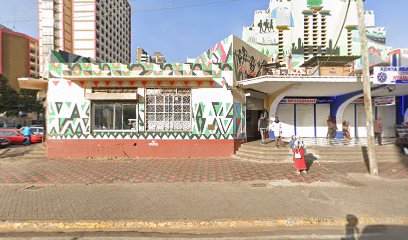
The Nairobi Gift Shoppe
Discover the beauty of Kenyan craftsmanship at The Nairobi Gift Shoppe, where every souvenir tells a story of culture and artistry.
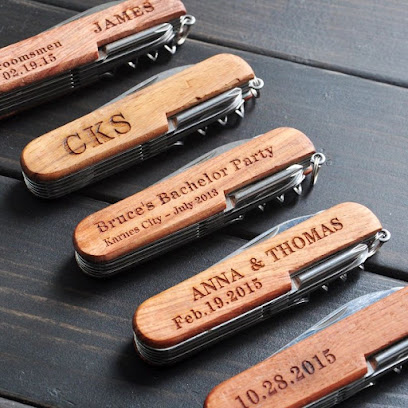
Market Stalls Center - Shop 2
Explore the vibrant culture of Nairobi through unique handcrafted treasures at Market Stalls Center - Shop 2, where every item has a story.
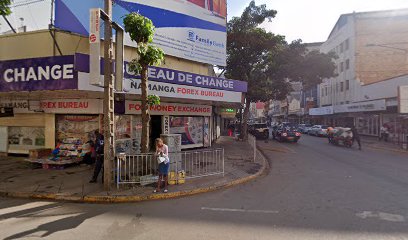
Unique Design
Explore Unique Design in Nairobi: Your destination for stylish fashion accessories that celebrate Kenyan artistry and culture.
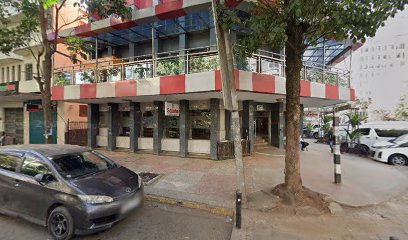
Unique Smart and state
Explore Unique Smart and State in Nairobi for a fusion of traditional and modern fashion that reflects Kenya's vibrant culture.
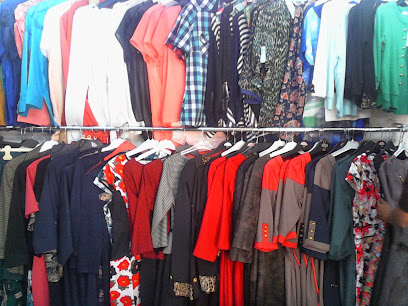
Essential bars & hidden hideouts
Mwenda's Pub
Discover Mwenda's Pub in Nairobi: a vibrant spot for drinks, local culture, and unforgettable experiences in the heart of Kenya's capital.
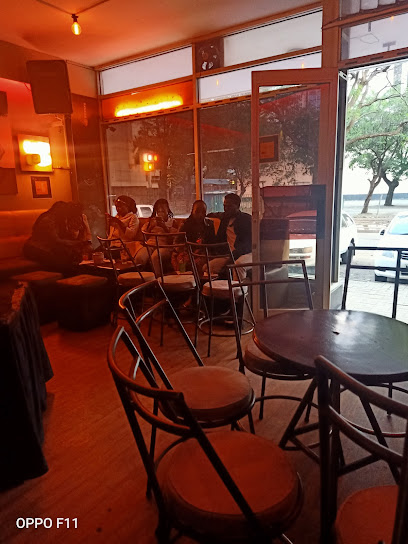
Number 7 Club
Discover energetic nightlife and a welcoming atmosphere at Number 7 Club, Nairobi’s premier bar for an unforgettable experience.
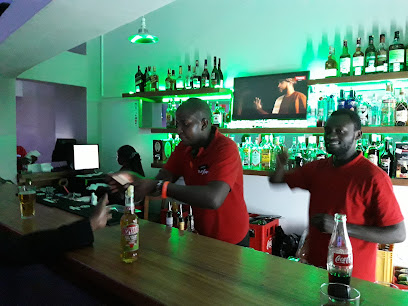
Sky Lounge
Sky Lounge offers breathtaking views and a vibrant atmosphere, making it the perfect spot to unwind and enjoy Nairobi from above.
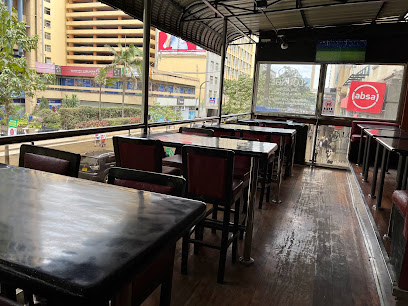
Wine Bar
Discover Nairobi's finest wine bar, where exquisite selections and a cozy atmosphere meet for a unique dining experience.
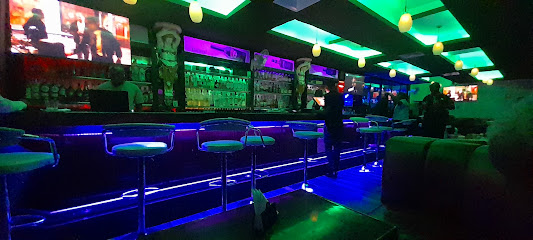
Jockey Pub
Discover the vibrant nightlife at Jockey Pub, where local brews and friendly faces create a memorable Nairobi experience.
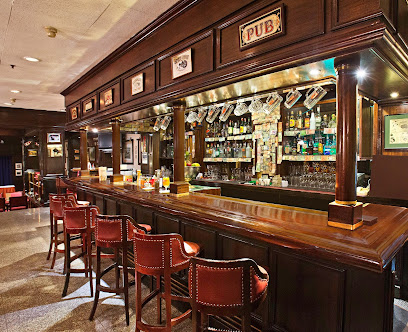
Exchange Bar
Experience Nairobi's vibrant nightlife at Exchange Bar, an upscale venue offering an extensive drink menu and lively atmosphere.
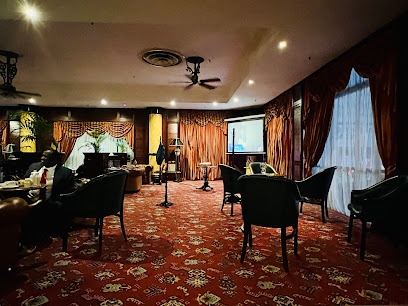
Zanze Bar And Restaurant
Experience the best of Kenyan hospitality and authentic African cuisine at Zanze Bar and Restaurant in the heart of Nairobi.
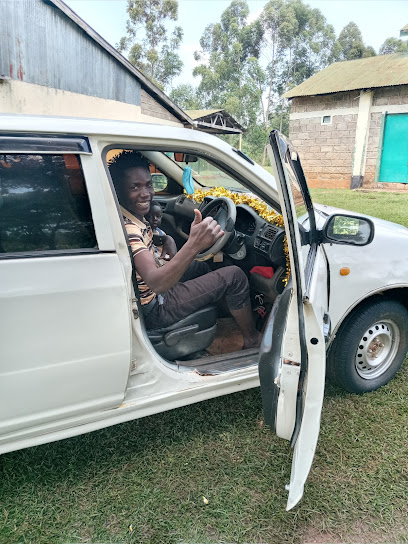
Johnnie Bar & Lounge
Discover culinary excellence at Johnnie Bar & Lounge in Nairobi, where grilled dishes and lively ambiance create unforgettable dining experiences.
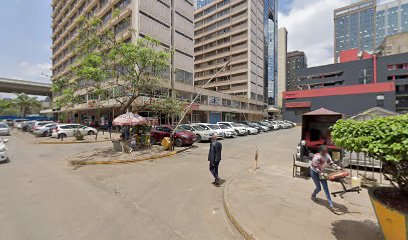
Bar
Experience the vibrant nightlife of Nairobi at this lively bar, where great drinks and a welcoming atmosphere await visitors.
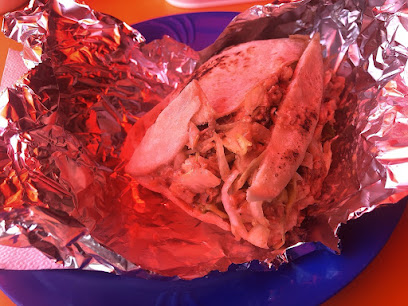
The 2Soc Bar
Discover Nairobi's vibrant nightlife at The 2Soc Bar, where expertly crafted cocktails meet a lively atmosphere in the heart of the city.
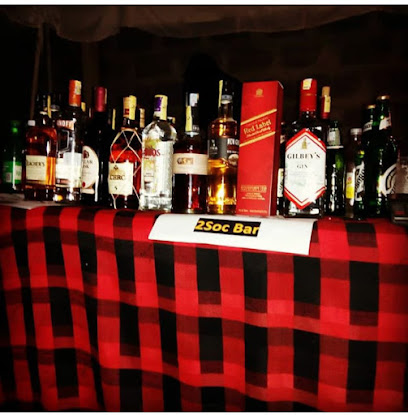
Local Phrases
-
- HelloJambo
[jahm-boh] - GoodbyeKwaheri
[kwah-heh-ree] - YesNdio
[nn-dyoh] - NoHapana
[hah-pah-nah] - Please/You're welcomeTafadhali
[tah-fah-dah-lee] - Thank youAsante
[ah-sahn-teh] - Excuse me/SorrySamahani
[sah-mah-hah-nee] - How are you?Uko aje?
[oo-koh ah-jeh] - Fine. And you?Mzuri. Na wewe?
[mzoo-ree. nah weh-weh] - Do you speak English?Unasema Kiingereza?
[oo-nah-seh-mah kee-in-geh-reh-zah] - I don't understandSielewi
[see-leh-wee]
- HelloJambo
-
- I'd like to see the menu, pleaseNingependa kuona menyu, tafadhali
[nee-ngeh-pehn-dah kwoh-nah meh-nyoo, tah-fah-dah-lee] - I don't eat meatSi kula nyama
[see koo-lah nyah-mah] - Cheers!Saluti!
[sah-loo-tee] - I would like to pay, pleaseNingependa kulipa, tafadhali
[nee-ngeh-pehn-dah koo-lee-pah, tah-fah-dah-lee]
- I'd like to see the menu, pleaseNingependa kuona menyu, tafadhali
-
- Help!Msaada!
[msah-ah-dah] - Go away!Ondoka!
[ohn-doh-kah] - Call the Police!Piga Polisi!
[pee-gah poh-lee-see] - Call a doctor!Piga daktari!
[pee-gah dahk-tah-ree] - I'm lostNimepotea
[nee-meh-poh-teh-ah] - I'm illNinaumwa
[nee-nah-oom-wah]
- Help!Msaada!
-
- I'd like to buy...Ningependa kununua...
[nee-ngeh-pehn-dah koo-noo-noo-ah] - I'm just lookingNatafuta tu
[nah-tah-foo-tah too] - How much is it?Bei ni ngapi?
[beh-ee nee ngah-pee] - That's too expensiveHilo ni ghali sana
[hee-loh nee gah-lee sah-nah] - Can you lower the price?Unaweza kushusha bei?
[oo-nah-weh-zah koo-shoo-shah beh-ee]
- I'd like to buy...Ningependa kununua...
-
- What time is it?Saa ngapi?
[sah-ah ngah-pee] - It's one o'clockNi saa moja
[nee sah-ah moh-jah] - Half past (10)Nusu saa kumi
[noo-soo sah-ah koo-mee] - MorningAsubuhi
[ah-soo-boo-hee] - AfternoonMchana
[m-chah-nah] - EveningJioni
[joh-ee-nee] - YesterdayJana
[jah-nah] - TodayLeo
[leh-oh] - TomorrowKesho
[keh-shoh] - 1Moja
[moh-jah] - 2Mbili
[mm-bee-lee] - 3Tatu
[tah-too] - 4Nne
[nn-neh] - 5Tano
[tah-noh] - 6Sita
[see-tah] - 7Saba
[sah-bah] - 8Nane
[nah-neh] - 9Kenda
[ken-dah] - 10Kumi
[koo-mee]
- What time is it?Saa ngapi?
-
- Where's a/the...?Iko wapi...?
[ee-koh wah-pee] - What's the address?Anwani ni gani?
[ahn-wah-nee nee gah-nee] - Can you show me (on the map)?Unaweza kunionesha (kwenye ramani)?
[oo-nah-weh-zah koo-nyoh-neh-shah (kwehn-yeh rah-mah-nee)] - When's the next (bus)?Basi la pili lini?
[bah-see lah pee-lee lee-nee] - A ticket (to ....)Tikiti (kwenda ....)
[tee-kee-tee (kwehn-dah)]
- Where's a/the...?Iko wapi...?
History of Nairobi Central Business District
-
Nairobi was founded in 1899 as a railway depot for the Uganda Railway, connecting Mombasa to the interior of Kenya. The Central Business District (CBD) emerged as the commercial heart of the city, initially characterized by colonial architecture and the establishment of administrative buildings. The area was strategically chosen for its fresh water supply from the Nairobi River and its central location, which facilitated trade and communication.
-
By the 1920s, Nairobi had developed into a bustling urban center, prompting the construction of important infrastructures, such as the Kenyatta International Conference Centre (KICC), built in the 1970s. The architectural styles in the CBD reflect both colonial and modern influences, showcasing a blend of European and indigenous designs. The area became a melting pot of cultures, attracting diverse populations from various ethnic backgrounds, which enriched the local culture.
-
After gaining independence in 1963, Nairobi's CBD underwent significant changes. The area became a symbol of national pride, with the establishment of institutions that celebrated Kenyan heritage, such as the National Museum of Kenya. Art galleries, cultural centers, and markets flourished, fostering a vibrant local culture. The transformation marked a shift from colonial dominance to a celebration of Kenyan identity.
-
In the 1980s and 1990s, Nairobi faced economic challenges, including high unemployment and urban decay. The CBD, once a thriving business hub, experienced a decline as businesses relocated. However, recent efforts have aimed to revitalize the area through urban renewal projects and investments in infrastructure. The introduction of modern shopping malls, office complexes, and entertainment venues reflects a resurgence of economic activity and urban life.
-
Today, Nairobi's CBD is a vibrant tapestry of cultures, represented through its bustling markets, restaurants, and street life. The area reflects the dynamic nature of Nairobi as a city where tradition meets modernity. Cultural festivals, art exhibitions, and music events frequently take place, showcasing the rich cultural heritage of the various communities that call Nairobi home.
Nairobi Central Business District Essentials
-
Nairobi Central Business District (CBD) is easily accessible from various neighborhoods in Nairobi. You can take a taxi or rideshare service such as Uber, which are widely available and relatively affordable. Public buses and matatus (minibuses) are also an option, with several routes converging in the CBD. If you're coming from the airport, the Jomo Kenyatta International Airport is about 15 kilometers away, and you can take a taxi or an airport shuttle service directly to the CBD.
-
Nairobi CBD is compact and walkable, making it easy to explore on foot. Public transport options include the Nairobi Commuter Rail, which has a station at Nairobi CBD, and various buses and matatus that serve the area. Bicycles can be rented from local bike-sharing programs, and some areas are equipped with dedicated bike lanes. Ride-hailing apps are also convenient for navigating the city.
-
While Nairobi CBD is generally safe during the day, it is advisable to remain vigilant, especially in crowded areas. High-crime areas include parts of River Road and certain back streets. Avoid walking alone at night and keep your belongings secure. Use reputable transportation options and be cautious when interacting with street vendors.
-
In case of an emergency, dial 999 or 112 for police assistance. For medical emergencies, seek help at the nearest hospital, such as Kenyatta National Hospital. It is advisable to have travel insurance that covers medical emergencies. Local pharmacies can provide over-the-counter medications for minor health issues.
-
Fashion: Do dress modestly and appropriately, especially when visiting government buildings or places of worship. Don’t wear overly casual or revealing clothing. Religion: Do respect local customs; be quiet and respectful in places of worship. Don't engage in disruptive behavior. Public Transport: Do give up your seat for elderly passengers. Don’t eat or drink on public transport. Greetings: Do greet people with a handshake or a nod. Don’t use overly familiar terms unless invited. Eating & Drinking: Do try local cuisine and ask for recommendations. Don’t refuse food offered to you, as it may be seen as impolite.
-
To experience Nairobi CBD like a local, visit the bustling markets such as Sarit Centre or Maasai Market for unique crafts. Engage with local street vendors for authentic foods like samosas and mandazi. Take time to visit the Nairobi National Museum and the Nairobi Railway Museum for a glimpse into the city's history. For a unique experience, explore the hidden gems of the CBD, such as the serene Uhuru Park or the vibrant art scene in the alleyways.
Nearby Cities to Nairobi Central Business District
-
Things To Do in Naivasha
-
Things To Do in Nakuru
-
Things To Do in Arusha
-
Things To Do in Moshi
-
Things To Do in Kisumu
-
Things To Do in Eldoret
-
Things To Do in Kitale
-
Things To Do in Mbale
-
Things To Do in Malindi
-
Things To Do in Mombasa
-
Things To Do in Jinja
-
Things To Do in Diani Beach
-
Things To Do in Mwanza
-
Things To Do in Singida
-
Things To Do in Lamu













